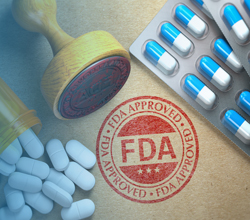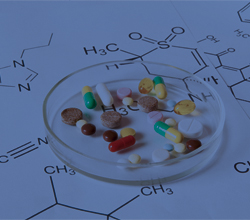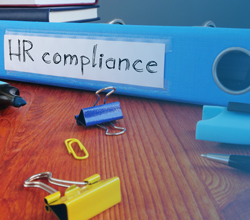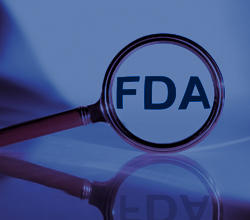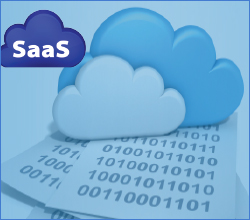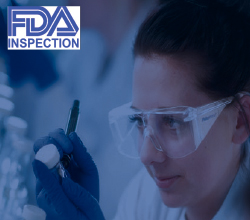
FDA's Current Thinking for Industry cGMPs for Phase 1 INDs
 Sandra N. Whetstone
Sandra N. Whetstone
 60 Min
60 Min
Product Id: 700155
This US FDA final guidance documentation training program will give an insider’s insight into the final guidance and discuss the rationale for such. The course will also elaborate CGMP statutory and regulatory requirements and recommendations for complying with the statue.

The Sunshine Act Reporting for Clinical Trials
 Mukesh Kumar
Mukesh Kumar
 60 Min
60 Min
Product Id: 702970
This webinar will discuss the disclosure requirements for clinical investigators under the Sunshine Act. It will discuss the details of the processes; provide templates for reporting formats; and timelines for reporting.

Creating a Global Regulatory Plan
 Cheryl Wagoner
Cheryl Wagoner
 60 Min
60 Min
Product Id: 703283
This regulatory training will help attendees understand key benefits for implementing and maintaining an effective global regulatory plan. Attendees will also gain exposure to the elements and a methodology for global regulatory plan development and maintenance.

Understanding FDA Regulations and Role in Opioid Pain Management
 David Lim
David Lim
 60 Min
60 Min
Product Id: 704010
This training program will help industry better understand FDA regulations and its role in governing opioid medications. Among other key topics in the area, it will also discuss recent FDA approvals for opioid medications.

How to Most Effectively Prepare for and Manage FDA Inspection: Best Practices
 David Lim
David Lim
 60 Min
60 Min
Product Id: 703245
This training program will discuss why it is important for you to be better aware of and to become better acquainted with FDA inspection best practices. In particular, the webinar will detail a list of Dos and Don’ts before, during and after the inspection.

Good Documentation Practices (GDP)
 Alla Teresh
Alla Teresh
 60 Min
60 Min
Product Id: 703874
This training program will detail best practices for documentation, list types of documents, and highlight key documentation requirements. Documentation is essential where FDA and other health authority regulations impose a special recordkeeping burden. In these industries, documentation serves both the scientific and compliance needs, and Good Documentation Practices (GDPs) are a set of activities that enable you to record your data and hand-written entries in a legible, traceable and reproducible manner.

Veterinary Drug Approval Process and FDA's Regulatory Oversight
 Karl M. Nobert
Karl M. Nobert
 60 Min
60 Min
Product Id: 703971
This training program will provide attendees with an introduction to FDA’s veterinary drug approval process. It will also discuss key components of an appropriate animal field study needed to support new animal drug approval and explain how jurisdiction is split between various federal agencies in certain cases.

Preparing for and Managing FDA Inspections
 Jonathan M Lewis
Jonathan M Lewis
 90 Min
90 Min
Product Id: 703512
This webinar will teach attendees how to prepare for, manage, and follow up on FDA inspections. It will discuss common pitfalls to avoid during an inspection.

Importing Pharmaceutical Products: What Every Importer of Drugs and APIs Should Know
 Reynaldo Roman
Reynaldo Roman
 90 Min
90 Min
Product Id: 703960
This training program will focus on U.S. import entry compliance and FDA import entry compliance. U.S. import requirements for pharmaceutical products are among the most rigorous of any country. As a result, it is critical for importers of drugs and APIs to know and comply with these requirements. Failure to comply with U.S. import requirements may result in clearance delays or import shipments being refused entry into the U.S.

Nutraceuticals/Dietary Supplements: FDA Regulatory Submission and Manufacturing Quality Requirements
 Gretchen Bowker
Gretchen Bowker
 60 Min
60 Min
Product Id: 702741
This dietary supplements quality compliance training will review the FDA regulatory requirements for manufacturing and commercialization of dietary supplements. You will gain a complete understanding of FDA requirements for manufacturing of nutraceuticals, food drugs, and dietary supplements.

FDA vs. EU Inspections - Getting Prepared and What are Differences
 Marie Dorat
Marie Dorat
 75 Min
75 Min
Product Id: 703516
This webinar will help attendees understand the FDA and EU inspection process and how to prepare for both of them. Attendees will learn the best practices to respond to Form 483 citations, Warning Letters and EU inspection findings.

Health Canada’s Enforcement of the Regulatory Requirements for the Manufacture, Advertising and Sale of Pharmaceuticals, Medical Devices and Natural Health Products
 Sara Zborovski
Sara Zborovski
 60 Min
60 Min
Product Id: 703830
The introduction of Vanessa’s Law in late 2014 has significantly changed the enforcement landscape, providing for the possibility of higher penalties than ever before in Canada. This training program will offer an overview of the new law and its potential impact on industry.

Blinding of Investigational Materials
 Donald Levine
Donald Levine
 90 Min
90 Min
Product Id: 703674
This webinar will introduce attendees to the basics concepts and techniques of blinding of investigational drug products. It will also provide an understanding of the complexities of the work required to prepare blinded products for clinical trials.

Canadian Advertising and Marketing of Pharmaceuticals, Medical Devices and Natural Health Products
 Sara Zborovski
Sara Zborovski
 60 Min
60 Min
Product Id: 703760
This webinar will provide attendees an overview of the relevant statutes, including the Competition Act, Food and Drugs Act and relevant regulations and information about the existence and operation of Canadian advertising pre-clearance agencies. The rules around advertising and marketing health products will be explained using examples, and hot topics in advertising and marketing will be covered, including the use of social media, testimonials and endorsements.

Pharmaceutical and Chemical Classification under the Harmonized Tariff Schedule
 Jan Seal
Jan Seal
 90 Min
90 Min
Product Id: 703749
This course will aid participants in minimizing errors in pharmaceutical and chemical classification under the Harmonized Tariff Schedule (HTS). It will help better protect your company during import/export audits from the government. Participants will also learn how to take reasonable care as an importer and become aware of best practices and red flags in the area of classification for imports into the United States.

Technology Transfer of a Pharmaceutical Manufacturing Process
 Mark Truei
Mark Truei
 90 Min
90 Min
Product Id: 703682
This expert instruction on technology transfer of a pharmaceutical manufacturing process will highlight with real world examples hidden traps in technology transfer not covered under its requirements. This webinar will help attendees ensure the success of tech transfer under any circumstance regardless of fields, countries, cultures, and applications.

Maintaining a Validated State – PV, PM and Statistics Associated with Current Regulation
 Jerry Dalfors
Jerry Dalfors
 80 Min
80 Min
Product Id: 703637
This course will instruct attendees on establishing an approach to process control within each unit of operation to generate overall process control needed for validation. The webinar instructor, an FDA expert, will enumerate the importance of variation in enhancing a validated means of operation and the parameters that can cause variability. The Randomized Block statistical model will also be analyzed for effective validation.

Current Good Manufacturing Practices (cGMPs)
 Philip Russ
Philip Russ
 120 Min
120 Min
Product Id: 703558
This webinar will cover in detail the current Good Manufacturing Practices (cGMPs) regulations for pharmaceutical products. Attendees will learn how to comply with these FDA regulations and avoid pitfalls.

Qualification Sample Size and Statistical Confidence for Pharma Process Performance Qualification (PPQ)
 Marvin Iglehart
Marvin Iglehart
 90 Min
90 Min
Product Id: 703579
This webinar will discuss the requirements and general expectations for Stage 2 – Process Qualification, the key concepts that lead to the basis of confidence level and/or statistical confidence and how to apply the concepts in practical use for validation, including acceptance criterion.

Food Contact Notification (FCN) - Obtaining New Regulations from FDA on Your Terms
 Jeffrey Scott Eberhard
Jeffrey Scott Eberhard
 60 Min
60 Min
Product Id: 703572
This food safety webinar will explain how to thoroughly review a food contact substance, determine its regulatory status and obtain a new regulation from FDA via the FCN process for a substance that does not meet suitable regulatory status.

